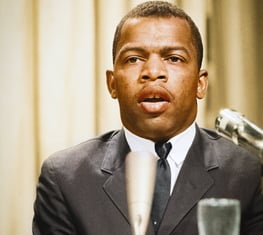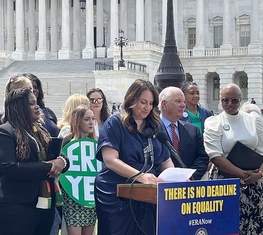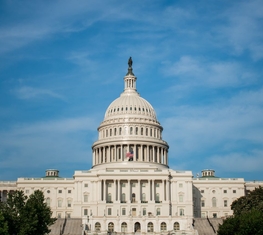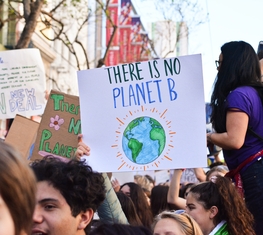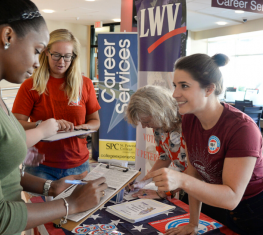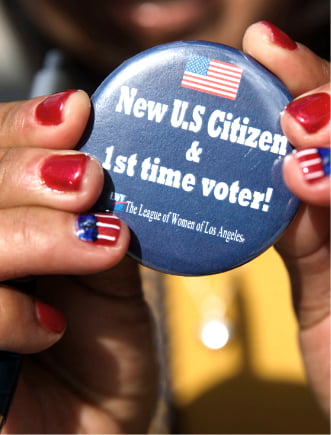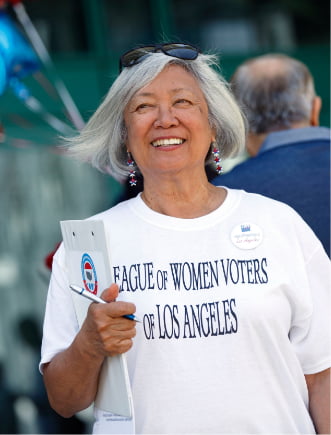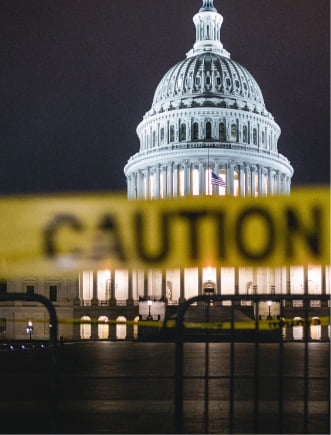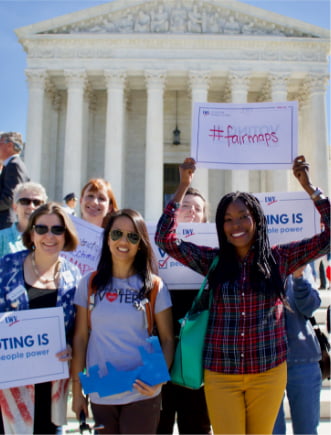This story was originally published in The New York Times
Democracy is messy, but usually not this messy.
Take, for example, New Hampshire, where President Biden boycotted the primary election last Tuesday, after the state jumped the line in the Democratic Party’s new schedule to keep its first-in-the-nation primary status. Because it would have been embarrassing if Mr. Biden had lost there, a group of supporters took to telling voters that, while he might not be asking for their vote, he didn’t not want it. Could you please write in his name? (They did, and he won.)
Next on the primary calendar is South Carolina, on Feb. 3, but that’s for the Democratic candidates. If you want to vote for a Republican there, you will not go to the polls until Feb. 24, after fellow party members in Nevada have their say.
Oh, and about Nevada: If you support Nikki Haley, you can vote for her in the state’s primary on Feb. 6, but your vote will not count toward the Republican nomination. That is tied to the party’s caucuses on Feb. 8, and Ms. Haley will not be part of that process. If you support former President Donald J. Trump, you can vote for him in the caucuses, but not in the primary. The primary, which is run by the State of Nevada, will be conducted by mail, while the caucuses will be in person. That’s because the Nevada Republican Party opposed conducting the primary by mail, which is part of why it scheduled the caucuses to begin with.
Got it?
As voters enter an election year in which many feel that democracy itself is on the ballot, they face a bewildering set of dates and procedures to choose their presidential nominees. And that’s without even getting into the longtime snag of some states’ scheduling separate primaries for president and other offices, as well as special elections, all of which adds up to some voters having as many as five Election Days.
“It’s all very confusing for us, even as people who are elections people,” said Virginia Kase Solomón, the chief executive of the League of Women Voters, which runs the voter information website Vote411.org.
A large body of research suggests that the morass could reduce participation.
“Anything that disrupts voter habits will diminish turnout,” said Donald P. Green, a professor of political science at Columbia University. “Changes about location and day and format all have a disruptive effect.”
And that disruption, said Alex Meadow, the senior director of partnerships at Vote.org, could be hardest to navigate for “voters who are newer to the process,” reinforcing the tendency of primaries to skew toward the most engaged, and most partisan, voters.
It also has the potential to fuel distrust in elections — and in Nevada, it is already doing so.
The process there splintered when the Nevada Republican Party decided to hold its own caucuses — on a different night, with an ID requirement but no mail-in or early voting, and a stipulation that ballots be counted by hand. The party will award delegates to the Republican National Convention based solely on the caucus results, and it barred candidates who put their name on the primary ballot from the caucuses.
So voters will have Mr. Trump as an option in the caucus but not in the primary, and they will have Ms. Haley as an option in the primary but not the caucuses. No matter how much support Ms. Haley receives in the primary, she will not be allocated any delegates to the convention, and Mr. Trump’s supporters are receiving primary ballots in the mail without his name on them.
For weeks, the party has been fielding questions on social media from voters who are confused by Mr. Trump’s absence or, worse, believe falsely that this shows the election is rigged.
The chair of the Nevada Republican Party, Michael McDonald, blamed state election officials for not advertising the party’s caucuses on primary ballots. But disinformation appears to be at play, too.
Last week, Kash Patel, a former counterterrorism adviser to Mr. Trump, held up a Nevada primary ballot in a video interview with the right-wing commentator Benny Johnson and declared, “They’re doing another election-rig job,” complaining that Mr. Trump’s name was not on the ballot — ignoring that Mr. Trump himself had chosen not to put it there.
David Damore, a professor of political science at the University of Nevada, Las Vegas, said he expected “not a whole lot of participation at all, which totally defeats the purpose of (a) having a caucus for party-building and (b) being an early state.”
If confusion or misplaced anger discourages people from voting, the stakes will move beyond just the presidential nominees.
Research has shown that voting is “habit-forming,” meaning that once people vote, they are more likely to keep doing it. The converse is also true: People who miss an election risk falling out of the habit of voting. One confusing election could reverberate for years.
Political scientists have long warned about this. Researchers at Yale University and Tel Aviv University suggested two decades ago that having a lot of elections that aren’t viewed as important — which it called “typical of the United States” — can break down voting habits because people get used to skipping them. A study in 2016 showed that voting habits remained the strongest when elections follow the same format.
“If you voted in November of 2020, you’re more likely to vote in November of 2024; you’re not necessarily more likely to form habits that would apply to some quirky Saturday election in the primary season,” said Dr. Green, who was a co-author of both studies.
These patterns are not absolute. Some changes, like expanding early and mail-in voting, have drawn in people who did not or could not cast traditional in-person votes. And many voters do adapt, especially the engaged ones who are likeliest to participate in primaries in the first place.
Enrijeta Shino, an assistant professor of political science at the University of Alabama who studies voting behavior, said complications like those in this year’s primary elections would probably have a greater impact if they happened in a general election. Besides, more people than usual have been paying attention to politics lately, and voters turned out in huge numbers in 2020 even during the upheaval of the coronavirus pandemic.
“Voters are extremely engaged right now,” Mr. Meadow said, “and that can prevent these types of changes and shifts from having the effect that maybe they would have in the past in a lower-intensity and lower-engagement environment.”
Still, this year’s contests have brought warning signs.
In New Hampshire, even as turnout in the Republican primary broke the state’s record, turnout in the unsanctioned, Biden-less Democratic primary was lower than in the Republican primary four years ago, which, while similarly uncompetitive, did have the main candidate on the ballot.
Both Mr. Meadow, of Vote.org, and Ms. Solomón, of the League of Women Voters and Vote411.org, said their websites had seen heavier traffic this year. Ms. Solomón said her organization’s site had received more than four times as many visitors in the first 10 days of 2024 as in the first 10 days of 2020 — most likely a sign of an electorate in unusually hot pursuit of clarity.
“People are coming proactively looking for the information,” she said, but added, “The concern for us is you’re going to see this voter fatigue that could kick in.”
What You Can Do
The Latest from the League
Caucuses "are meetings run by political parties that are held at the county, district, or precinct level." In the months before a presidential election, several states hold caucuses where candidates vie for party support. Caucus participants then vote for the candidates they support; the number of votes each candidate receives determines how many party “delegates” will be sent to support that candidate at the party’s convention.
VOTE411.org did more than just help me register to vote. It also gave me the information I needed to vote for the very first time this Election Day.
Who votes in primaries? And what happens next? Here’s a quick look at primaries to help answer your questions about this pivotal part of our voting system.
